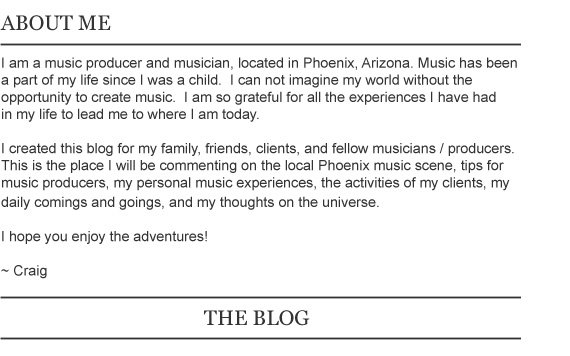I have written thousands of songs and worked in all styles/genres. One thing I notice, especially when working with a singer for the first time, is their harsh judgment on themselves while the red button is lit and rolling.
It's real easy to criticize yourself while singing a vocal take. We have instant radars telling us it's not supposed to sound like that. When our energy drops, our belief in the performance is hindered. One thing you are doing is selling yourself to your audience. Treat it like the first date as you talk yourself up to impress that special someone. You are the star, so be the star! Own your song, and if I or someone else writes the song for you, own it anyway.
Don't rely on monitoring (although, it’s great to have a good sounding mix in your headphones) because it is very important to know what your voice sounds like outside of all the music you’re singing along with. I love tracking with the monitors blasting and getting a singer pumped, but I also like to know the singer is on top of song so I can hear if he or she is staying in tune. Don't think that Autotune or Celemony Melodyne will save a horrible vocal take. Too much Autotune will sound artificial (unless you want to sound like Akon or Kanye West), so I rarely use it. Learn to sing, practice, and exercise your vocals. With all this technology it's easy for us to get so lazy and say, "oh the computer will make me sound like a rock star." Wrong! Practice your chops, melodies, and most importantly, your breathing. If you run out of air on the first verse, how are you going to perform a 10 song set live?
I wanted to take some time and explain that being a great singer is not hard. It takes commitment and a relationship with your songs. Have faith in yourself, and trust that whatever the song calls for, you can deliver it. Study your favorite singers, listen to the way they phrase, know when to take a breath and extend the breath for effect.
This last tip is very important. Learn rhythm, and how phrasing relates to rhythm. Get a metronome and learn to sing in time and practice with beats or instruments. It's very important that you own the song and by falling off beat or not knowing how to phrase, is the first sign of an amateur. I'm usually working one on one with my clients, so I’m on hand to help them... but I can't stress enough how important practice and dedication is to becoming a great singer.
The one thing a singer can always use is a good vocal coach, and the committment to use one.
Just remember you are a star and if you can dream it you can live it. :o)
Some really good vocal coaching dvds, books, and other information are below.
Singing Success
Perfect Pitch
Singing for the stars
Seth Riggs

Sunday, March 22, 2009
Subscribe to:
Post Comments (Atom)






Awesome post and dead on. Ironically, I stumbled on this post on my computer. Somebody in the house looked it up and left it on the screen.
ReplyDeleteSinging it correctly is just a piece of the puzzle. You have to BE in the song.